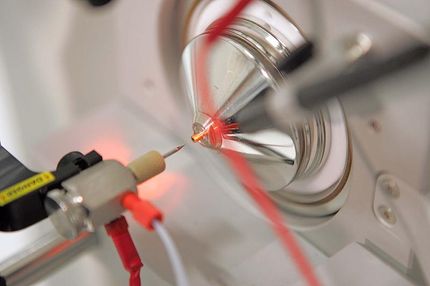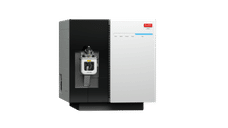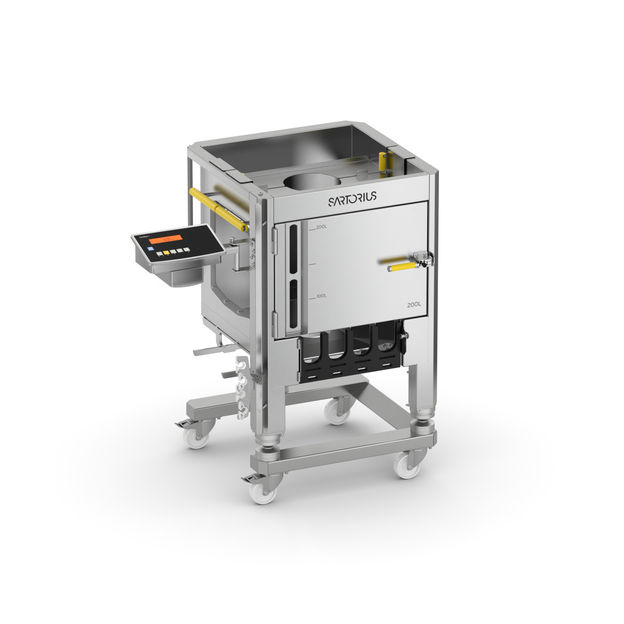Agilent Technologies to enhance proteomics solutions with addition of AP-MALDI from MassTech Inc.
PALO ALTO, Calif., Agilent Technologies Inc. announced an agreement with MassTech Inc. of Burtonsville, Maryland. Under the terms of the agreementAgilent and MassTech are expected to develop a customized version of MassTech's atmospheric pressure matrix-assisted laser desorption/ionization (AP-MALDI) source as original equipment for sale on the Agilent 1100 Series LC/MSD Trap ion trap mass spectrometers as well as possible future Agilent mass spectrometers.
AP-MALDI, a gentle ionization technique, is particularly well suited to the analysis of peptides and related compounds of interest to scientists doing proteomics research. It may also have applicability in the high-volume analysis of drug candidates generated by combinatorial chemistry.
Information at a Fraction of Previous Cost
Until recently, MALDI plus the MS/MS data acquisition required for structural elucidation was available only from quadrupole-time-of-flight (Q-TOF) or time-of-flight-time-of-flight (TOF-TOF) mass spectrometers with prices approaching $500,000. The combination of AP-MALDI with the LC/MSD Trap is expected to allow scientists to acquire MS/MS data from ions generated by MALDI for a fraction of that price.
"We are extremely pleased at the prospect of offering our customers this ionization choice," said Frank Cesarz, LC/MS marketing manager at Agilent. "Combined with the intelligent, second-generation data- dependent MS/MS acquisition of the LC/MSD Trap, it should be a very sensitive, rugged, and inexpensive way to acquire large amounts of important proteomics data."
Outstanding Sensitivity
Tests with peptide digests have shown excellent sensitivity for absolute sample amounts in the low femtomole range spotted onto the sample plate. AP-MALDI analysis consumes only a fraction of the total sample deposited, allowing sample plates to be stored for further analysis.
Load Samples in Seconds Instead of Minutes or Hours
Traditional MALDI sources operate under high vacuum. Loading a new sample plate is a tedious process taking up to an hour to break vacuum, load a sample plate, re-establish vacuum, and allow the system to stabilize before analyses can resume. Because AP-MALDI takes place at atmospheric pressure, a new sample plate can be loaded in seconds -- simplifying operation and greatly increasing sample throughput.
The 96-well sample plates are compatible with sample deposition by robotic preparation systems, which can also increase throughput.
Agilent will work closely with MassTech to improve source performance and adapt the AP-MALDI source to the LC/MSD Trap's ion source mounting system.
U.S. Availability
Pricing of the AP MALDI source has not yet been determined. Shipments are expected to begin in late summer 2002.
Information about Agilent's life science products and services is available at www.agilent.com/chem.
Other news from the department research and development
These products might interest you
Most read news
More news from our other portals
See the theme worlds for related content
Topic World Mass Spectrometry
Mass spectrometry enables us to detect and identify molecules and reveal their structure. Whether in chemistry, biochemistry or forensics - mass spectrometry opens up unexpected insights into the composition of our world. Immerse yourself in the fascinating world of mass spectrometry!

Topic World Mass Spectrometry
Mass spectrometry enables us to detect and identify molecules and reveal their structure. Whether in chemistry, biochemistry or forensics - mass spectrometry opens up unexpected insights into the composition of our world. Immerse yourself in the fascinating world of mass spectrometry!

























































